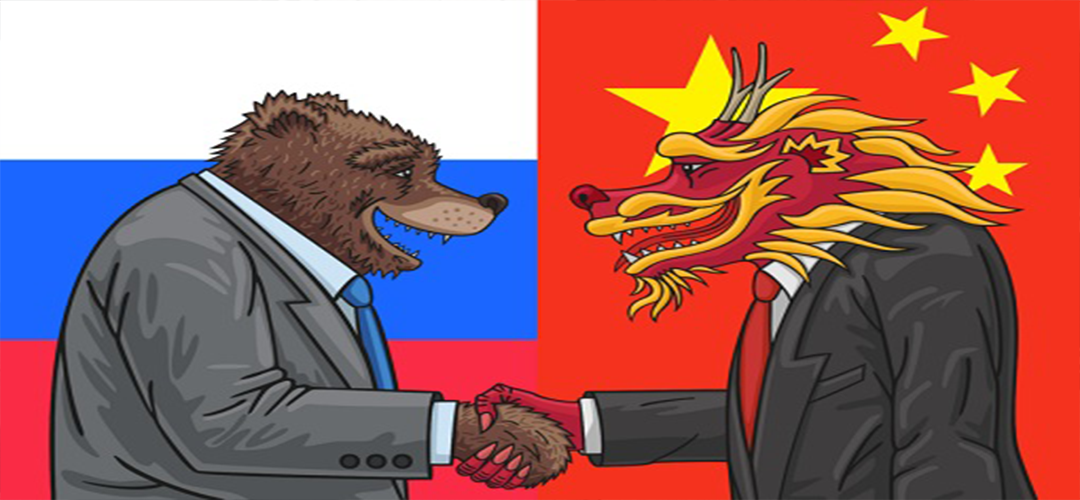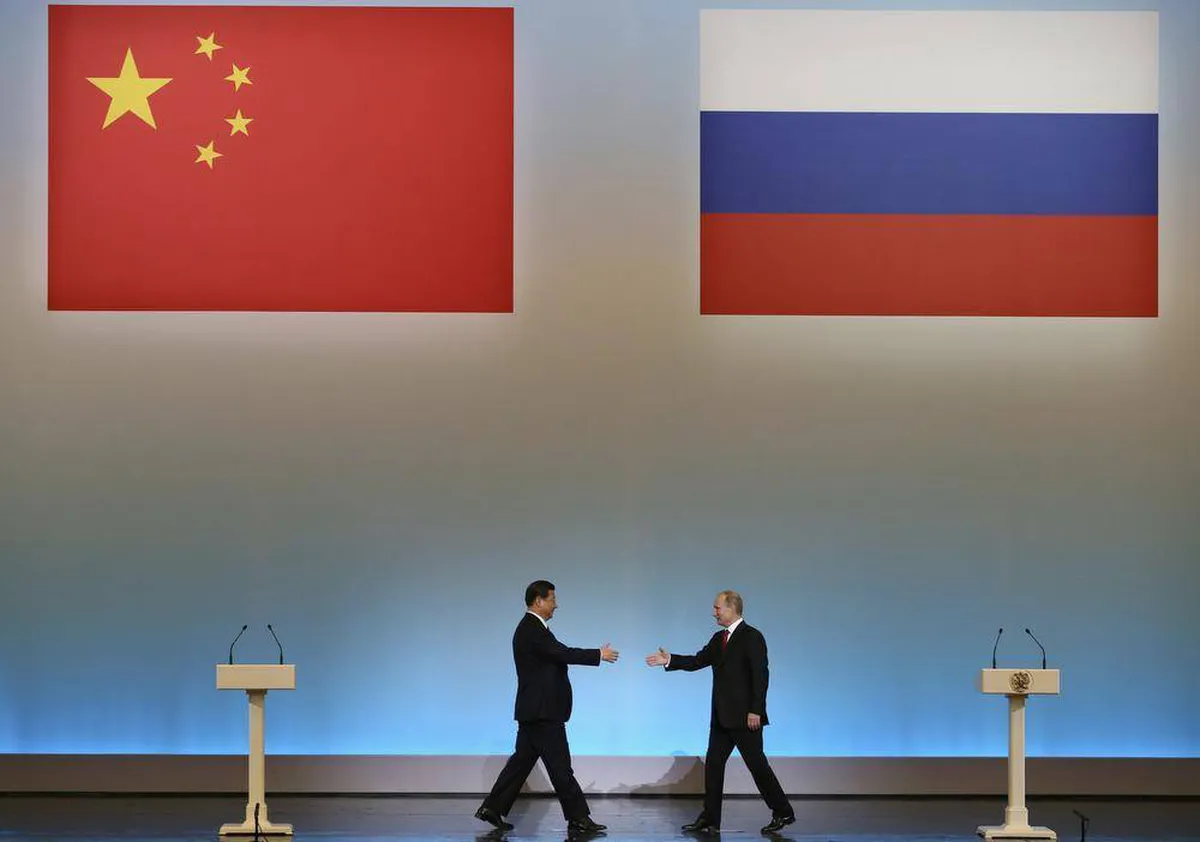THE DRAGON AND THE BEAR
September 24, 2022 | Expert Insights

As the war rages on between the West, Ukraine and Russia, along with rising tensions between Taiwan and China, the relationship between Russia and China is under focus.
The dynamics of the 'China-Russia Axis' has, over the years, dramatically shifted in favour of Beijing, with Moscow increasingly appearing as the 'junior partner'. China tries to play down the strategic connotation of this relationship calling its support to Russia, especially during the ongoing crisis, "symbolic" rather than "mercenary."
To better understand this evolving partnership, it is necessary to analyse the logic of bilateral ties and the national interests of each side that have materialised rather than just reading the tea leaves.
Background
In the joint statement of February 4, Russia and China expressed mutual concern about the advancements in their common regional interests. The difference between internal and exterior contours in the Ukrainian crisis and the external issue relates to Ukraine's interactions with NATO, and the West can be clearly seen.
The internal conflict is about what is happening within the nation; it has to do with how the pro-Russian regions are doing and how the current Ukrainian government is structured. The second set of concerns, crucial to Russia's justification for its "special military operation," have gone unmentioned by China, notwithstanding the closer distance between their positions. It seems unlikely that the Chinese silence represents a tacit acceptance of Russian talking points; rather, the contrary.
Like many non-Western nations, China has developed its position on the conflict per its overall foreign policy strategy and understanding of the importance and goal of international alliances. China's public statements have often been limited to a few essential points that have been reiterated since the first day of the invasion: the West, particularly the United States, is to blame for what took place in Ukraine as well as Russia since they have consistently disregarded Russia's security concerns. It is crucial to have a shared understanding of security in the area and around the globe that considers all parties' interests and worries and is independent of the West.
China has merely stated that it comprehends (and, inferentially, sympathises with) Russia's position on Ukraine, not that it "supports" Russia in this regard. Additionally, China has vehemently denied providing "support" to Russia's military operations in Ukraine.

Analysis
The case of Ukraine is strategically vital for the future of Sino-Russian relations. Russia and China are not allies, despite their expanding military cooperation. If China were somehow involved in the operation with the Russian Army, top-level collaboration on Russia's future military actions would make sense. Any possibility of such a coordinated operation is obviously off the table, and the parties value their shared confidence by maintaining a high level of strategic independence. When the narratives of China and Russia on the Ukraine issue are discussed, a glaring difference is overlooked.
The war in Ukraine has generated both opportunities and threats, which Beijing is still attempting to assess and manage accurately. Political and ideological polarisation in Southeast and South Asia is growing; the war complicates China's relationship with Russia. Western economic sanctions have made it difficult for Beijing to implement the Belt and Road Initiatives. Related financial restrictions are likely to continue. These factors together pose a threat to China's reputation and image abroad.
Additionally, the NATO alliance has become stronger as a result of the conflict in Ukraine, which China views as advancing American geopolitical objectives. And in the eyes of the Western democracies of Europe, China has become a military threat and now figures prominently in their strategic calculations as one.
Assessment
- Both countries are in an unprecedented position. However, China has gradually reversed its previously nuanced support for Russia's stance. The repeated calls also reveal a pattern: Russia is prepared and willing to expressly denounce American activities regarding Taiwan, the first of China's "core interests."
- But regarding Ukraine, China is becoming less and less prepared to take a similar stance. In the larger picture, while China is non-partisan, Russia is making moves to project to the world that China is a more closely coupled strategic partner than it may be in reality. The wise Chinese sitting in Beijing will not let the Russian albatross drag it down if Russia sinks.








Comments